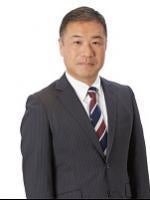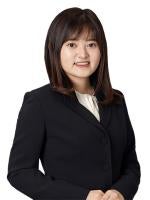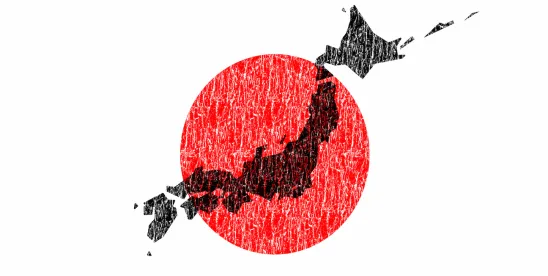The Japanese government is aware of the challenges in securing funds for drug development within Japan’s biopharmaceutical startup ecosystem, especially compared to Europe and the United States. To strengthen this ecosystem, the government has allocated JPY 350 billion (approximately USD 2.3 billion) to support startups. The Japan Agency for Medical Research and Development (AMED), which is a funding agency somewhat equivalent to the National Institutes of Health in the United States, has established a program to support biopharmaceutical startups involved in developing patentable pharmaceuticals and regenerative medicine products and therapeutics. AMED registers venture capital firms (VCs) to provide hands-on support and funding to these startups. Approved startups supported by a registered VC may receive grants up to double the amount the VC invests, potentially allowing startups to raise significant nondilutive funds.
How Japan’s ‘Double Match Up’ Grant Program Works: 2:1 Funding Ratio Explained
When a registered VC invests in a biopharma startup and AMED approves the startup’s pharma development project (a.k.a “pipeline”), AMED will provide grants totaling twice the VC’s investment amount. For example, if a registered VC invests USD 10 million to an AMED-approved pipeline in a biopharma startup, then AMED will provide USD 20 million grants through several stages. AMED may provide grants up to JPY 6.7 billion (approximately USD 44.5 million) to a single pipeline of biopharma startup. In total, an approved startup pipeline may receive up to JPY 10 billion, including the VC’s investment portion for one pipeline. AMED may increase the maximum amount on a case-by-case basis. The AMED double match up program only refers to the amount invested by the registered VC. If the startup has other investments by a non-registered VC, the invested amount from the non-registered VC is not considered for calculating the double match up. Because the AMED grants are awarded on a per-pipeline basis, startups with multiple pipelines may receive grants for each pipeline, provided that a registered VC invests in that specific pipeline and AMED approves it.
AMED does not receive shares or other equity instruments from the startup in exchange for the grants, so the provision of AMED grants will not dilute the VC, founders, and other investors.
Pharma Startup Eligibility Requirements for AMED Double Match Grant Program
The AMED double match grant is available to biopharma pipelines in startups that meet the following conditions:
- The startup’s pipeline must be involved in pharmaceutical development, including regenerative medicine products. In other words, medical devices do not fall under the eligible products in this grant program.
- The startup’s pipeline must be in the pre-clinical, Phase 1, Phase 2, or exploratory clinical study stages. That pipeline is eligible for the grant even if a final development candidate has not been determined.
- A registered VC must have invested in or committed to invest in the startup’s pipeline.
- AMED must approve the startup’s pipeline.
- A patent application for the candidate products must be filed. If the startup is intentionally delaying patent application as part of its the marketing strategy, it must provide detail of its IP strategy.
Startups do not necessarily need to be corporations originating from Japan. Offshore entities with a presence in Japan (through a wholly owned subsidiary) that contribute to strengthening the Japanese biopharma ecosystem are also eligible. Some Japanese startups look to the U.S. market and have converted to U.S. corporations for ease of filing with the Food and Drug Administration (FDA) and obtaining funding. As long as a Japanese entity remains, AMED allows headquarter re-domiciliation to the United States.
This grant program does not support a nominal Japanese entity of a foreign pharma startup. As the purpose of this program is to strengthen the Japanese biotech ecosystem, the Japanese entity must be substantive and must utilize the grants (the majority of funds in Japan) for research and development operations; payments for operation expenses in Japan, such as rents, compensation for Japanese employees, and legal costs; and payments to industry stakeholders, such as CROs and CMOs.
Venture Capital Registration for AMED Grants: Requirements for Lead Investors
A VC registered with AMED can request a grant for a pipeline of a pharma startup, subject to AMED’s approval, if the VC has invested in the startup and taken the lead VC role. The lead VC is typically the investor with the largest investment during the program period and plays a leading role in fundraising and hands-on activities. As of August 2025, 30 VCs have been registered with AMED. Of those, nine registered VCs are foreign VCs based outside of Japan and six are joint ventures with Japan and U.S. VCs.
VC Registration Criteria for AMED Double Match Grant Program
To register with AMED, VCs must meet the following criteria:
- Have invested at least one-third of their total investment in the drug discovery field (not only in Japan but also other parts of the world) over the last five years.
- Have a track record of supporting clinical trials conducted by the pharma startups they have invested in as a lead VC.
- Have a history of the VC’s employees and consultants serving as directors to the biopharma startups they have invested in as a lead VC.
- Partners and officers in a VC who make investment decisions or provide expert advice must have experience in drug development at pharma companies (e.g., regulatory affairs, business development, development planning) or significant experience in advancing drug development (e.g., reviews by organizations such as Japan’s Pharmaceuticals and Medical Devices Agency and the FDA).
- Partners and officers in a VC who make investment decisions or provide expert advice must have experience in global drug development (e.g., experience in conducting global clinical trials, hands-on support for global clinical trials).
Because of the needed hands-on support capabilities, it is required (though not statutorily provided in AMED policies), to have a resident person in Japan who can communicate with the startup in Japanese. The liaison does not necessarily need to be a VC employee; using a contracted person or third-party consultant would satisfy this requirement.
Lead Investor Responsibilities: Minimum Investment Requirements for Registered VCs in AMED Program
- A registered VC must become the lead investor in a biopharma startup. In this program, the “lead” investor is typically the one with the largest investment during the program period and who plays a leading role in fundraising and hands-on activities.
- A lead registered VC must invest at least JPY 1 billion in the biopharma startup from the initial investment to the end of the granting period. If the startup has not determined a final development candidate in the AMED-approved pipeline, a registered VC must invest at least JPY 100 million in the biopharma startup as the initial investment until a final development candidate is determined.
Application Processes for AMED VC Registration and Startup Pipeline Approval
The application window for AMED VC registration usually opens twice a year (spring and fall). While all application forms are provided in Japanese on the AMED website, responses and content may be submitted in English. The application process takes approximately four to five months and includes a review of the application documents, including the proposal to AMED, as well as interviews with the applicant’s representatives. Upon AMED’s completion of the review process and approval, the VC will enter into a registration agreement with AMED, which lasts for two years, and the agreement may be renewed.
The application window for AMED approval on the startup pipeline the registered VC invested in usually opens four times a year. Unlike the VC registration application, all the application documents must be provided in Japanese, so preparation time should be budgeted for the startup’s pipeline application. Interviews will also be conducted, and Japanese translation shall be set for offshore applicants The application process takes approximately three months.





 />i
/>i
